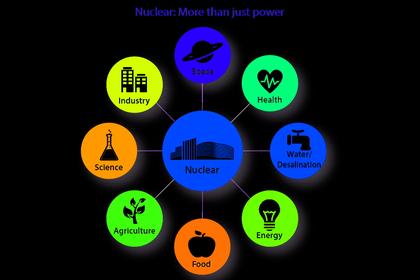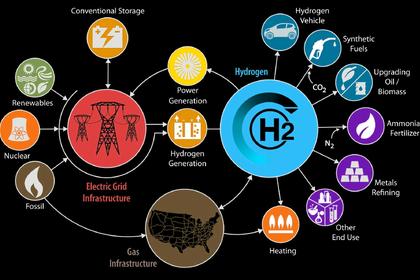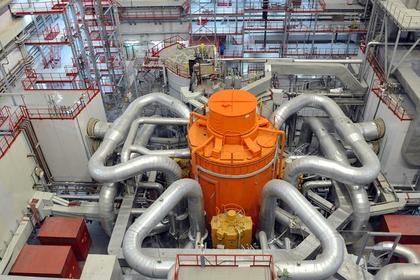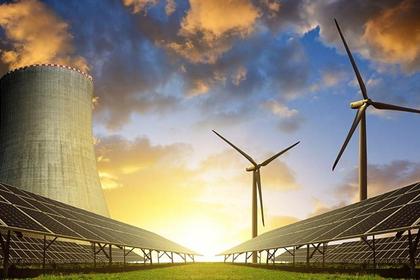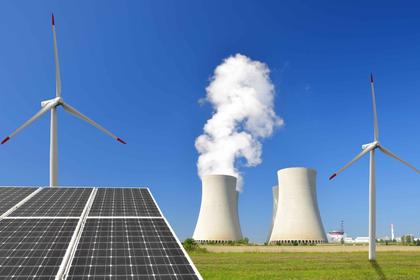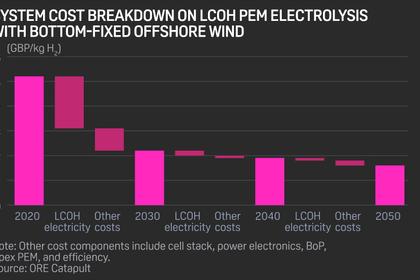
NUCLEAR POWER FOR BRITAIN
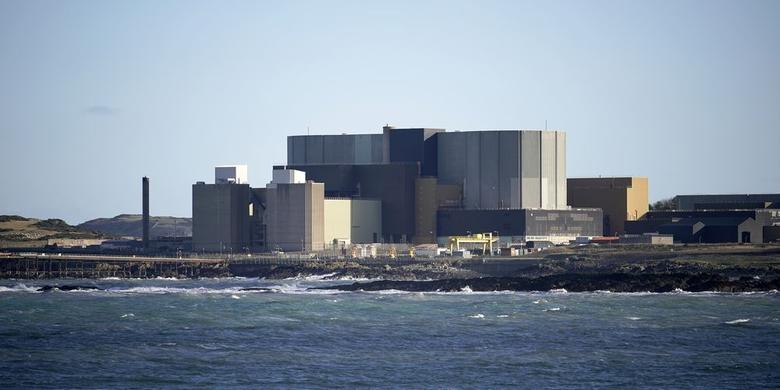
BLOOMBERG - 6 October 2020 - The U.K. government is considering taking an equity stake in new nuclear stations as part of the financing measures being put forward to try to get at least one more project built.
The U.K. Treasury is looking at having "a portion of equity from the government being invested" as a way of backing nuclear energy, Energy Minister Kwsai Kwarteng said on a panel at the ruling Conservative Party conference..
"It would be unrealistic" to say that all the finance questions have been resolved, he said. "There is a broad strategic commitment and the way in which the finance is arrived at and categorized are questions for further debate."
Britain's pipeline of nuclear projects has shrunk to just one -- Electricite de France SA's Sizewell C. The government says it's committed to nuclear as a low carbon form of generation but whether any more stations are built hinges on finding a finance model that's palatable to investors.
"In Sizewell C we think we have the design, a supply chain and industry and what we need now is a funding model," said Simone Rossi, chief executive officer of EDF's U.K. arm.
What the U.K. does next on nuclear should become clear when the long-awaited government white paper is published in a few weeks that'll spell out future plans for the sector. Separately, the results of a consultation looking at financing options are expected.
While the so-called regulated asset base model garnered initial support, ministers have been considering other options for months that could include taking a stake in projects.
An equity stake taken by the government would “cut the cost of capital for new nuclear power stations,” said Tom Greatrex, chief executive officer of the Nuclear Industry Association. “Setting out a new financing model is vital to progress the new nuclear projects we need to create jobs and hit net zero.”
This isn’t the first time the British government has offered to take an equity stake in a nuclear plant. In 2019, the U.K.’s offer to Hitachi Ltd. included taking a third of the equity in the 20 billion-pound ($26 billion) project. That didn’t prove generous enough for the company to attract the private sector investment it needed and the plug was finally pulled on the Wylfa project last month.
The white paper is also expected to outline support for small modular reactors suitable for powering manufacturing. So far, the government’s investment in this industry has been nominal with the technology still at the demonstration stage.
Britain’s Nuclear Projects
| Project Name | Size (GW) | Partners | Status | Comments |
| Hinkley Point C | 3.2 | EDF, CGN | Under construction | On track to start generating 2025, costing 22.5 billion pounds. Construction financed by EDF. Government guaranteed price for power sold from plant. |
| Sizewell C | 3.2 | EDF, CGN | Waiting for planning permission | Reactor design based on Hinkley plant. EDF looking for ways to fund it without shouldering all the risk. It’s seeking to combine government and private funding. Aims for planning application early 2020. Construction due to start 2021. Electricity flows from 2031. |
| Bradwell | 2.3 | CGN | Early technical stages | Seeking government approval for a Chinese reactor design. China’s ownership of a major infrastructure project likely to be politically sensitive. |
| Wylfa | 2.9 | Hitachi | Abandoned on Sept. 16 | Hitachi pulled out of project after putting it on hold in 2019. Was due to start generating in mid-2020s. |
| Oldbury | 2.9 | Hitachi | Shelved on Jan. 17 | Project in very early development stages. Site identified but no applications had been made for regulatory approvals. |
| Moorside | 3 | Toshiba | Shelved on Nov. 8 | Decision to halt project came after failed attempts by Toshiba to sell its stake. No financing agreement was in place with the government. Was due to start operating in 2025. |
-----
Earlier:
